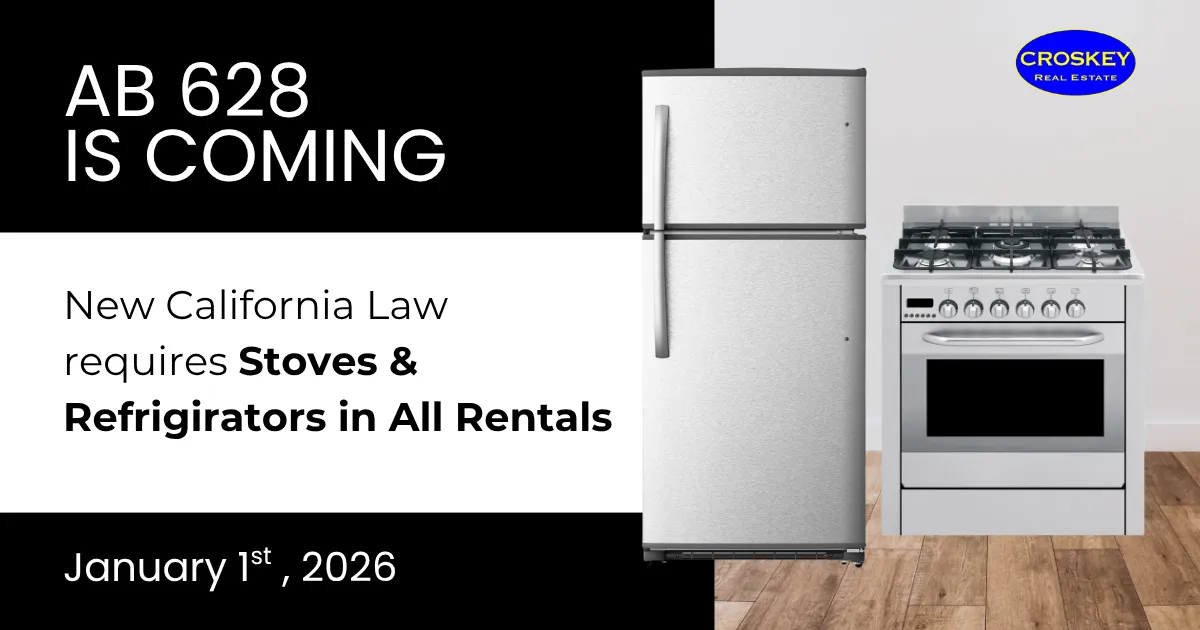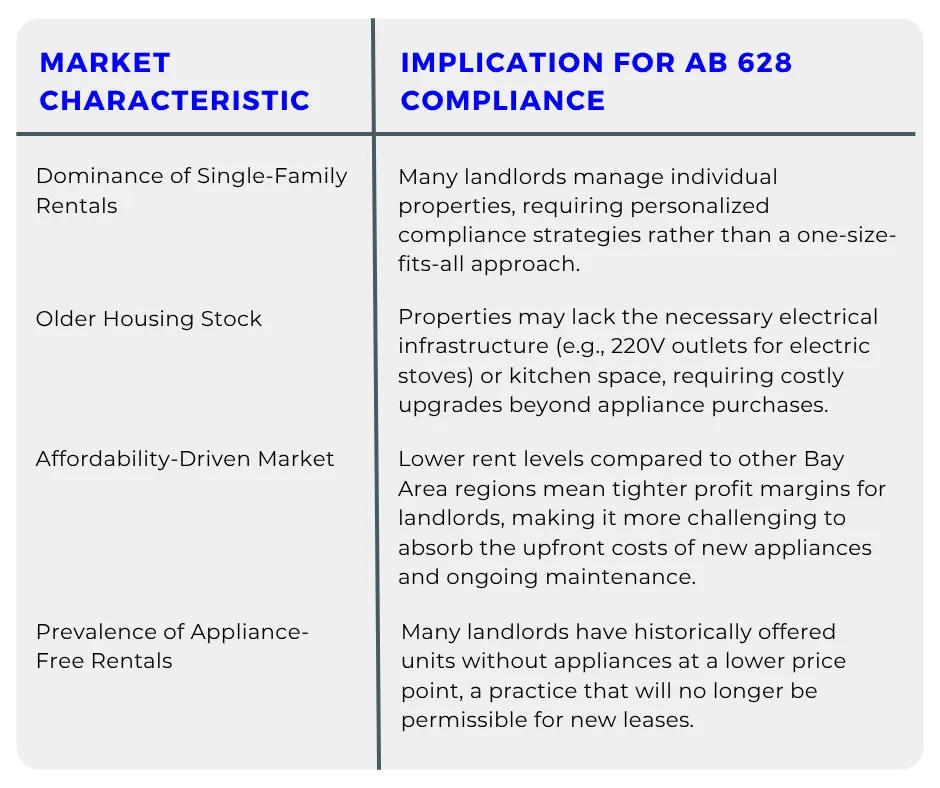
Pittsburg, CA • Serving East Contra Costa County
California’s rental housing landscape is undergoing a significant transformation with the passage of Assembly Bill 628 (AB 628). Signed into law by Governor Gavin Newsom, this new legislation redefines habitability standards for rental properties, creating new obligations for landlords across the state. For property owners in East Contra Costa County, a region characterized by its unique housing stock and affordability challenges, understanding and preparing for AB 628 is not just a matter of compliance—it’s a strategic necessity. This guide provides a comprehensive overview of AB 628, its specific implications for East Contra Costa landlords, and three actionable steps to ensure a smooth transition to the new requirements.
What is AB 628?
AB 628, authored by Assemblymember Tina McKinnor, amends California’s Civil Code §1941.1 to include a working stove and refrigerator as essential components of a habitable dwelling. Effective for all new, amended, or renewed leases starting January 1, 2026, this law mandates that landlords must provide these appliances in good working order. Previously considered amenities, stoves and refrigerators are now legally defined as necessities, placing them in the same category as heating and running water. This change significantly expands landlord responsibilities and creates new legal risks for non-compliance.
“Landlords cannot have occupants in a rental without a refrigerator just like they can’t have you in there without hot running water or a heater,” explained Assemblymember McKinnor, highlighting the bill’s intent to modernize living standards for California tenants [1].
The Impact on East Contra Costa Landlords
East Contra Costa County, with its diverse mix of urban and suburban communities like Antioch, Pittsburg, and Oakley, presents a unique set of challenges for AB 628 compliance. The region’s housing market, dominated by single-family homes (67% of the housing stock) and a significant number of rental properties (over 135,000 renter households), means that many small-scale landlords will be directly affected by this new law [2].

Three Actionable Steps to Prepare
To navigate the complexities of AB 628, East Contra Costa landlords should
take the following three steps:
1. Conduct a Comprehensive Property and Financial Assessment
The first step is to conduct a thorough inventory of your rental properties to determine which units will require new appliances. This assessment should include an evaluation of existing electrical and plumbing systems to identify any necessary upgrades. Once you have a clear understanding of your property needs, you can develop a detailed budget for appliance purchases, installation, and any required renovations. Industry data suggests that landlords should budget approximately $1,200 to $2,000 per unit for a basic refrigerator and stove, with additional costs for installation and potential infrastructure work [3].
2. Update Lease Agreements and Legal Documentation
With the January 1, 2026, deadline approaching, it is crucial to update all lease agreements to reflect the new habitability standards. Your leases should clearly state that a working stove and refrigerator are included as part of the rental agreement and outline the procedures for maintenance and repairs. This is not merely a suggestion; it is a legal necessity. A malfunctioning appliance can now be used as a basis for habitability disputes, rent withholding, and even as a defense in eviction proceedings. Implementing a robust system for tracking appliance maintenance and replacement schedules is also essential for mitigating legal risks.
3. Develop a Strategic Implementation Plan
Rather than waiting until the last minute, a phased implementation approach will allow you to spread out costs and manage the transition more effectively. Prioritize properties with upcoming lease renewals or new tenant placements in early 2026. This will give you the opportunity to test different appliance models, establish relationships with reliable suppliers and installers, and refine your maintenance protocols. Early compliance can also be a powerful marketing tool, allowing you to attract high-quality tenants and potentially command higher rents.
The Bigger Picture: Beyond Compliance
While AB 628 presents a new set of challenges, it also offers an opportunity for landlords to enhance the value of their properties and improve their market position. By investing in quality appliances and proactively managing compliance, you can create a more desirable living experience for your tenants, leading to lower vacancy rates and a more stable rental income. In the long run, embracing these new standards can be a strategic investment in the future of your rental business.
Conclusion
AB 628 represents a fundamental shift in California’s rental housing landscape. For landlords in East Contra Costa County, proactive preparation is key to navigating this new regulatory environment. By conducting a thorough assessment of your properties, updating your legal documents, and implementing a strategic compliance plan, you can not only meet the requirements of the new law but also position your rental business for long-term success.

